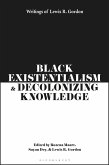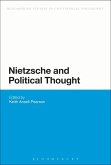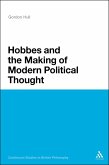Descartes' philosophy plays a special role in the works of both renowned and marginal writers in the Continental Tradition, particularly in their views on society and politics. This is the first book length study to consider political responses to Descartes in 19th and 20th century European thinkers.
Alon Segev shows how on the one hand Continental authors utilize Descartes' philosophy to advance the core ideas of Enlightenment and to combat the movements and systems of Capitalism, Materialism, Absolutism, Fascism, Nazism, and Neo-Paganism; however on the other hand, Segev also demonstrates that Continental authors have also discerned in Descartes' philosophy the main source of all these maladies of modernity.
These opposing views are examined as they are unfolded in known and forgotten texts by authors such as Vico, Sorel, Nietzsche, Husserl and Heidegger and by lesser known figures such as Baader, Borkenau and Böhm. By exploring celebrated and overlooked texts and authors, Alon Segev both details the Cartesian influence on the touchstone thinkers of political modernity, and also fills a wide historical gap in the research, providing a significant contribution to the discussion about the crises of the contemporary social and political world. In short, this book enables us, through Descartes, to assess the advantages and shortcomings of modern society.
Alon Segev shows how on the one hand Continental authors utilize Descartes' philosophy to advance the core ideas of Enlightenment and to combat the movements and systems of Capitalism, Materialism, Absolutism, Fascism, Nazism, and Neo-Paganism; however on the other hand, Segev also demonstrates that Continental authors have also discerned in Descartes' philosophy the main source of all these maladies of modernity.
These opposing views are examined as they are unfolded in known and forgotten texts by authors such as Vico, Sorel, Nietzsche, Husserl and Heidegger and by lesser known figures such as Baader, Borkenau and Böhm. By exploring celebrated and overlooked texts and authors, Alon Segev both details the Cartesian influence on the touchstone thinkers of political modernity, and also fills a wide historical gap in the research, providing a significant contribution to the discussion about the crises of the contemporary social and political world. In short, this book enables us, through Descartes, to assess the advantages and shortcomings of modern society.









